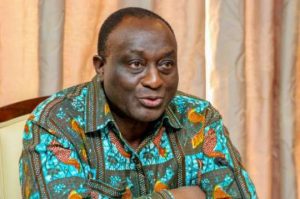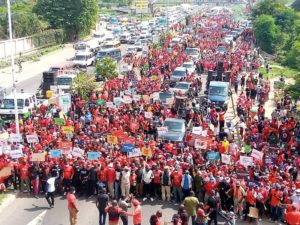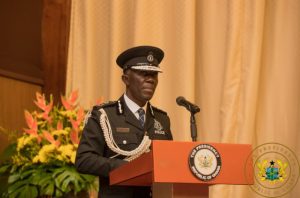Samuel, not his real name, a Ghanaian nurse who has migrated and is practicing in the United Kingdom interacted with Bernard Avle on the Citi Breakfast Show on Wednesday, July 6, 2022.
Samuel says he had practiced in Ghana for 8 years, before moving to the United Kingdom.
He shared with Bernard his motivation for moving to the UK.
“Things were really tough at the time, especially for nurses. So when I had the opportunity to leave the country [Ghana], I did all I can to seize it. I heard about this opportunity from some friends who were in the UK already.”
“The process takes between 6 months to a year. I did not have to pay any money. I just wrote the IELTS, an English Language proficiency test, and some others. I then applied to join the UK NMC. They then invited me into the country. I then searched for a slot in a hospital in the UK. I got a sponsorship letter from the hospital, and then got myself a visa.”
According to Samuel, there is a world of difference between the conditions of service in the UK and what he experienced back in Ghana.
“We are allowed to go with our families. I went with my wife. We did not struggle at all. I was given a month’s accommodation for free. My wife is a midwife as well. She is allowed to go through the process and secure a job for herself. I have been here for three weeks, and I must say, this is my best decision yet. This is a very good place and I will recommend every Ghanaian nurse to follow in my footsteps. There is a vast difference between the conditions of service here [in UK] and in Ghana. We have everything we need to work with. I don’t have to think of what to eat at work.”
“I work for 12 hours a day, we earn a minimum of 12 pounds an hour. I earn more than that. I don’t spend so much on transportation. I live 20 minutes away from my workplace, and so I mostly walk. When I was in Ghana, I was unable to save up to even GH¢1000. In the UK, I am able to save more than 500 pounds in a month, that’s around GH¢4500 in Ghana.”
He indicated that more than 15 of his mates had also migrated.
This was his reaction when he was asked when he intended to return to Ghana: “Come back? I am sure I will come back if I need to come down and see my parents. But if you are asking if I intend to come back and work in Ghana, that’s impossible. Let’s be frank.”
“Leadership should have to go the extra mile to make us return,” he added.
Meanwhile, the Ghana Registered and Midwives Association is urging the government to treat the issue of exodus of health workers with the urgency it deserves.
The Union of Professional Nurses and Midwives, Ghana (UPNMG) had earlier expressed concern about the seeming migration of Ghanaian health workers, especially nurses and midwives, from the country to the UK to work.
In an interview on the Citi Breakfast Show, the President of the Ghana Registered and Midwives Association, Perpetual Ofori Ampofo urged the government to “sit up” if it wants to reduce the brain drain phenomenon.
“I will not force these nurses from migrating to the UK. The conditions of service out there are better than what we have here. We have increasingly engaged government on this issue, but it seems all our attempts are not taken seriously.”
“This should go to put the government on its toes. A lot of these nurses will migrate at the least opportunity. Our nurses and midwives are improvising on a daily basis. The government needs to sit up immediately.”
The Union of Professional Nurse and Midwives has joined calls by some public sector workers for the government to pay them a 20% cost of living allowance (COLA).
The allowance, they say, is to help cushion them from the harsh economic situation in the country.
The union argues that the government appears to be dragging its feet with regard to ensuring their welfare.






